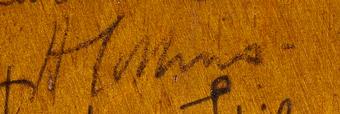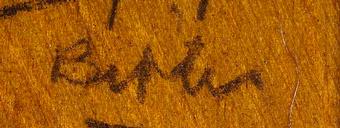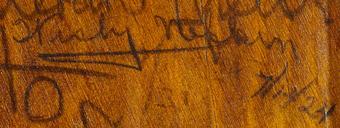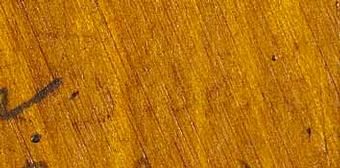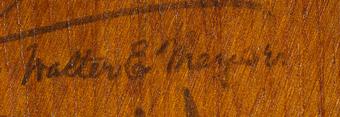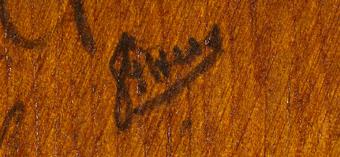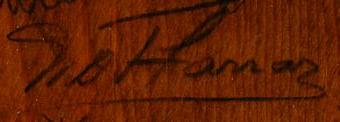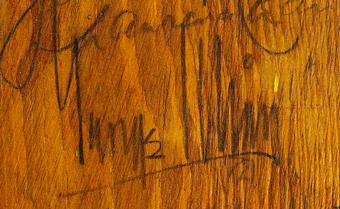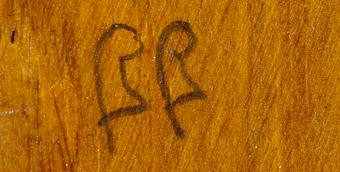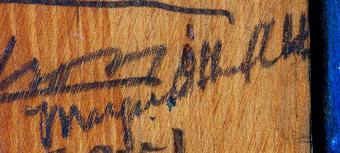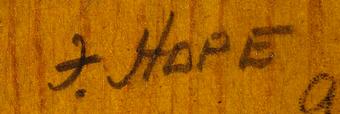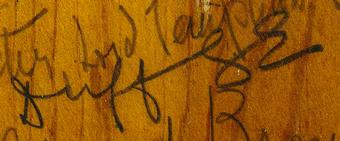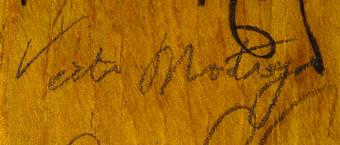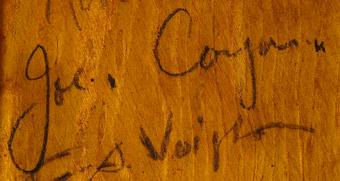
Each signature may be linked to the others by up to 53 thematic connections. Some are common to many signatures; others highlight unusual, yet notable, associations and interests. Friendships are not represented because so many signers were friends. Go to "The Bohemians" to view and interact with all 53 connections.
X
X
X
X
The Three Hours for Lunch Club was founded and dissolved before and after each meeting by its inventor, Christopher Morley. One of several clubs that Morley was to found over the years, including the Baker Street Irregulars in the 1930s, which continues to thrive today, the Three Hours for Lunch Club was at its most vibrant during the years of the bookshop’s operation. The membership fluctuated depending on who happened to be in town, and included Morley’s friends in the newspaper industry, ship captains, anyone else who Morley saw as “kinsprit.” Chances of membership presumably increased if the applicant enjoyed consuming and discussing good food, shandygaff, and fine tobacco. As Helen Oakley points out in her biography of Morley, another requirement for membership was an addiction to pranks, which were themselves an opportunity for members to display their cleverness. Morley’s magnetic personality and rapier wit was matched by that of the other Club members and the group grew in fame among New York’s literati over the years, due in no small part to Morley’s frequent descriptions of club meetings in his Bowling Green newspaper column. Lunches could take place anywhere--unlike those of the Algonquin Round Table--in places as diverse as Greenwich Village taverns, elegant downtown restaurants, railway station food counters, and even aboard the ship Columbia courtesy of host and member David William Bone. One of Morley’s columns, “The Club at its Worst”(1923), captures the group’s spirit:
"A barbecue and burgoo of the Three Hours for Lunch Club was held, the club’s medical advisor acting as burgoomaster and Mr. Lawton Mackall, the managing director, as jest of honor. The news that Lawton was at large spread rapidly through the city, and the club safely gained the quiet haven of a Cedar Street chophouse. Here, when the members were duly squeezed into a stall, the Doctor gazed cheerfully upon Endymion and the Secretary who held the inward places. 'Now is my chance,' he cried, 'to kill two bards with one stone.'"

- View larger image
- View metadata
X
Creator: Digby, Kenelm, 1603-1665
Title: The Closet of Sir Kenelm Digby Knight, Opened
Description: Inscribed by William Rose Benet, Christopher Morley, David William Bone, Lawton Mackall, Howard Swiggett and Frank Shay. Front jacket flap removed and attached to inside front cover.
Imprint: London: Philip Lee Warner, 1910
Item Date: 1910
Material Type: Monographs
Curatorial Department: Book Collection
Collection Name: Christopher Morley Library
Stack Location: TX 705 D5 1910 MOR
Copyright Notices: Some of the documents shown here are subject to U. S. copyright law. It is the user's sole responsibility to contact the copyright holder and secure any necessary copyright permission to publish documents, texts, and images from any holders of rights in these materials. As the owner of the physical object (not the underlying copyright), the Ransom Center requires that you also contact us if you wish to reproduce an image shown here in a print publication or electronically.
Every effort has been made to trace copyright ownership and to obtain permission for reproduction. If you believe you are the copyright owner of an item on this site, and we have not requested your permission, please contact us.
X
The Closet of Kenelm Digby Knight, Opened (London: Philip Lee Warner, 1910)
William Rose Benét's inscription reads, "This being the charter of the Three Hours for Lunch Club." The book used to hold the charter is a seventeenth-century cookbook by Kenelm Digby, an eccentric scientist known for his recipe for mead, among other things. Digby is considered responsible for the design of the modern wine bottle, a fact likely appreciated by club members.



